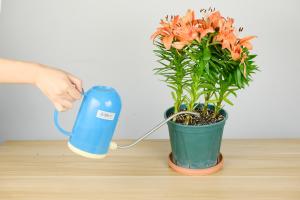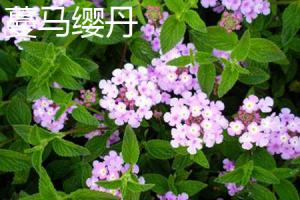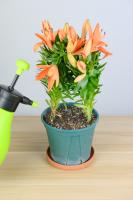How to Prevent Insect Damage on Plants Naturally
Insects can cause serious damage to plant leaves, which can affect the overall health of the plant. Using chemical pesticides can be harmful to both the environment and our health. In this article, we will discuss natural ways to prevent insect damage on plants.
1. Introduce Beneficial Insects
Introducing beneficial insects like ladybugs, lacewings, and praying mantises to your garden can help control the population of harmful insects. Ladybugs and lacewings feed on aphids, mites, and other harmful insects that eat plant leaves. Praying mantises feed on larger insects like grasshoppers and caterpillars.
2. Use Neem Oil
Neem oil is a natural insecticide that is extracted from the seeds of the neem tree. It is effective against a wide range of insects, including aphids, mites, and whiteflies. Neem oil works by disrupting the insect's hormonal balance, making it difficult for them to feed and breed. To use neem oil, mix 2 tablespoons of oil with a gallon of water and spray the solution on the affected plant leaves.
3. Plant companion plants
Planting companion plants can help protect your plants from insects naturally. For example, planting marigolds can repel aphids, whiteflies, and other pests. Rosemary, mint, and basil repel flies and mosquitoes, while lavender repels moths and fleas.
4. Use Homemade Insect Sprays
Homemade insect sprays can be made using common ingredients found in your kitchen. For example, a mixture of garlic, onion, cayenne pepper, and liquid soap can be an effective insecticide. Mix one tablespoon of each ingredient with a gallon of water and spray it directly on the plant leaves. You can also use a mixture of vinegar and water to repel ants and other crawling insects.
5. Remove Infected Plant Leaves
Removing infected plant leaves can prevent the spread of insects to other parts of the plant. Infected leaves can be removed using a pair of pruning shears or scissors. Be sure to clean the pruning shears or scissors after each use to prevent the spread of disease to other plants.
Conclusion
Preventing insect damage on plants naturally is possible with the use of beneficial insects, natural insecticides, companion planting, homemade insect sprays, and proper pruning. By implementing these methods, you can keep your plants healthy and free from insect damage without resorting to harmful chemical pesticides.

 how many times do yo...
how many times do yo... how many planted tre...
how many planted tre... how many pine trees ...
how many pine trees ... how many pecan trees...
how many pecan trees... how many plants comp...
how many plants comp... how many plants can ...
how many plants can ... how many plants and ...
how many plants and ... how many pepper plan...
how many pepper plan...






























